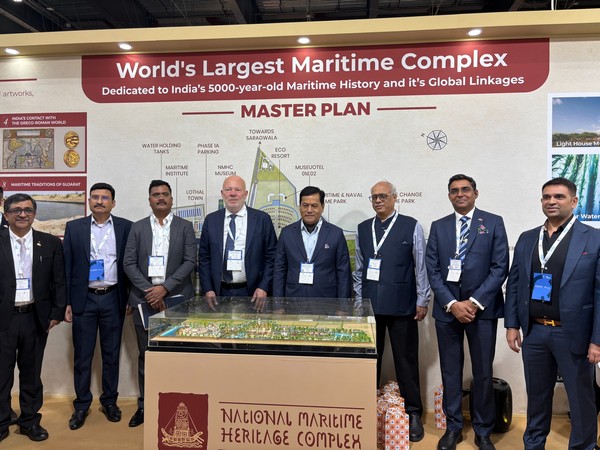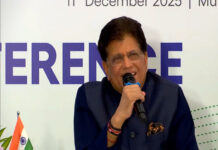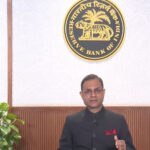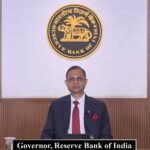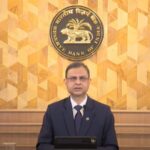Oslo [Norway] : Union Minister Sarbananda Sonowal delivered the keynote speech at the India country session, India@NorShipping.
At the session, the Union Minister highlighted India’s growing maritime capabilities, including a favourable policy-induced investment environment, proven shipbuilding strength, circular economy efforts, and innovative financing plans to accelerate sectoral growth.
Speaking on the occasion, Union Minister Sarbananda Sonowal said, “Under the able and visionary leadership of Hon’ble Prime Minister Shri Narendra Modi ji, India is moving decisively toward the goals of Viksit Bharat and Atmanirbhar Bharat.”
“These goals envisage India as a modern, self-reliant, inclusive, and globally engaged economy. In this journey, the maritime sector is central–not just as a driver of growth, but as an enabler of resilience, sustainability, and strategic connectivity. India has launched wide-ranging efforts to expand port infrastructure, integrate logistics systems, and improve the ease of doing business for the private sector. These reforms already bear fruit: increased port efficiency, stronger cargo flows, and rising investor confidence.”
India’s Shipping Minister also highlighted strengthening of maritime connectivity and supply chains with strategic corridors like IndiaMiddle East-Europe Economic Corridor (IMEEC), the Eastern Maritime Corridor (EMC), and the International North-South Transport Corridor (INSTC).
Sarbananda Sonowal said, “To support these efforts, India has committed USD 20 billion for infrastructure development focused on enhancing multimodal logistics, port connectivity, and trade facilitation. India is working to become a credible and competitive alternative. Through policy incentives, ease of doing business, and infrastructure enhancement, we are laying the foundation for India to emerge as one of the top five shipbuilding nations by 2047.”
Emphasising the need for a Green and Sustainable Maritime Future, the Union Minister Sarbananda Sonowal added, “India is establishing three Green Hydrogen Hub Ports– Kandla, Tuticorin, and Paradip– to support the manufacturing of green hydrogen and its derivatives and to pioneer the use of alternative fuels in the maritime domain. We are also proud to lead under the IMO’s Green Voyage 2050 initiative, assisting developing countries in their energy transitions.”
At a special session titled “India: The Resurgent Shipbuilding Destination” introduced delegates to India’s expanding shipbuilding ecosystem.
The session spotlighted India’s transition into a global hub for new-age, sustainable vessels, backed by modern infrastructure, scalable capacity, and international collaborations. Emphasis was laid on how India is leveraging its scale advantage and policy reforms to position itself as a shipbuilding powerhouse.
Sarbananda Sonowal said, “India’s maritime digital ecosystem is transforming. Initiatives such as ONOP (One Nation One Port Process), National Logistics Portal (Marine) and MAITRI – Virtual Trade Corridor create a unified national platform for port services and EXIM trade. These efforts are improving operational transparency, reducing transaction time and building real-time data systems. We are also engaging with global partners to establish Virtual Trade Corridors to digitally connect ports, enabling seamless cargo movement and reducing bottlenecks.”
In another session, “Ship Recycling – Enabler to Circular Economy and Sustainable Maritime,” India presented its mature, Hong Kong Convention (HKC) compliant ship recycling framework. The country’s environmentally regulated and high-capacity ship recycling ecosystem was showcased as a key contributor to global circular economy efforts. The event also featured a strategic presentation on India’s port-led decarbonisation strategy. This included the development of green hydrogen and ammonia production hubs at Indian ports to support green fuel bunkering, shipping corridors, and overall maritime decarbonisation goals.
On India’s proven Maritime manpower, Sarbananda Sonowal said, “India is currently the second largest seafarer manpower provider to Norwegian-owned ships. Through this platform, I encourage larger partnerships for seafarer recruitment between Norwegian and Indian agencies. India stands ready–as a reliable, responsible, and forward-looking maritime partner.”
“We are committed to shaping a maritime future that is green, secure, efficient, and inclusive,” the minister added.
On the investment front, discussions focused on “Innovative Financing for Maritime Growth,” with insights into the proposed Maritime Development Fund. The blended finance model aims to use concessional government capital to unlock private investment. India also highlighted institutional mechanisms for risk sharing and partnership models to mobilise investments into its growing maritime sector.
Global maritime leaders, policy makers, technocrats, and industry representatives attended the sessions, reinforcing India’s vision of a sustainable, modern, and inclusive maritime future.
Several prominent voices including Helene Tofte of the Norwegian Shipowners’ Association (NSA); Tone Knudsen Fiskeseth; Sveinung Oftedal, Special Director at Norway’s Ministry of Climate and Environment; Padmanabhan Rukumini Hari, Chairman & Managing Director of Garden Reach Shipbuilders and Engineers (GRSE); Rear Admiral G.K Harish (Retd), Vice President and Head at L&T; Vivek Merchant, Director at Swan Defence and Heavy Industries; Annette Holte, President and Country manager of Kongsberg Maritime India; Venkatesapathy ., Joint Secretary at India’s Ministry of Ports, Shipping and Waterways; Ingvar M Mathisen, Port Director of the Port of Oslo and Norwegian Ports Association; Uday Chaitanya, Country Manager at DNV; Tarun Gulati, CEO of eShipfinance.com; Pradip P, CEO of Maharashtra Maritime Board; and Rajeev Nayyer, Advisor to Swan Defence and Heavy Industries. (ANI)

